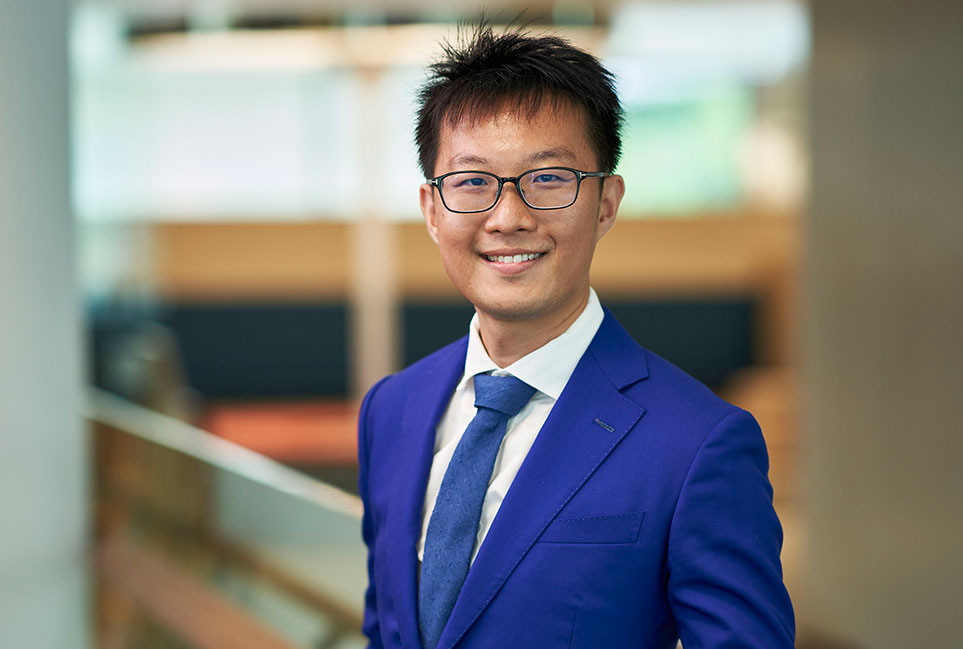
Kenneth Tai has always had a habit of observing how people behave.
“I like to people-watch and to understand why people react in a certain way. What are some of the events in their life that triggered that reaction?”
It was this habit that led him to study psychology and which has led him to his current position as Associate Professor of Organisational Behaviour & Human Resource at the Lee Kong Chian School of Business.
Associate Professor Tai got an honours degree in psychology from the National University of Singapore and this qualification allowed for a seamless transition to his current specialty, organisational behaviour.
While psychology broadly involves understanding people’s feelings, thoughts and behaviours, what he focuses on now is understanding the psychology of employees at the workplace in terms of how motivated they are and their thoughts on their coworkers and their behaviour.
“A lot of the principles I learned in psychology have been used in my research in organisational behaviour,” says the 38-year-old.
“We are dealing with human beings so that is the common point of reference. It’s just that social psychology is broader at a societal level, whereas organisational behaviour is mainly focused in organisations.”
One of Associate Professor Tai ’s areas of interest involves negative interpersonal events in organisations. While there is some research to show that there’s interpersonal “costs” as a result of social exclusion in the workplace – such as lower levels of psychological well being and negative effects on interpersonal and work outcomes – he’s interested in showing how individuals can cope with it.
“It’s not enough for researchers to show that it’s bad, we need to look at the conditions under which these effects can be negated and mitigated. That was the impetus for my research,” he said of the study, the findings for which were published in “Power motivates interpersonal connection following social inclusion”, in Organizational Behavior & Human Decision Processes in 2013.
Doing research on topics related to workplaces brought Associate Professor Tai back to a favourite childhood (and even adulthood) toy of many people – teddy bears. The concept was to figure out how to help people cope with exclusion using the power of physical touch.
Hugs can be comforting but could this effect also arise from cuddling a soft toy, he wondered. The aim then was to see if hugging a “non human agent” could make people feel more positive and how that, in turn, drives pro-social behaviour.
The research findings were published in Social Psychological and Personality Science in 2011, in an article, “Touching a teddy bear mitigates the negative effects of social exclusion”. It found that participants who hugged the teddy bear did have higher levels of positive emotions but this didn’t come through in participants who only viewed the teddy bear from a distance.
One research he’s really excited about, as it has more real - world implications in terms of organisational behaviour, concluded that people who are physically fit are less likely to act in a deviant manner at work, such as taking property from work without permission.
This followed research in the United States that showed that the higher the fitness index of a particular metropolitan area, the lower the crime rate.
To replicate this in a local setting, Associate Professor Tai collected data from the Singapore military and used Individual Physical Proficiency Test results as the physical fitness measure. He then got participants to report on how deviant their army buddies were.
The research found that people who were fitter were less likely to be deviant, or engage in anti-social behaviour. This research showed that being physically fit doesn’t just benefit the individual, but affects one’s interpersonal relationships.
Associate Professor Tai did his PhD in Management & Organisation at NUS and wrote a thesis on envy and how it affects interpersonal relationships and performance at work. During his PhD course, he realised the skills he was learning and enjoying were what academics do. That was when he decided to pursue an academic career as opposed to becoming a consultant.
He joined SMU in 2013 because he could see that the department was growing and that the research direction it was heading in was very promising. And he wanted to be a part of that.
“I also joined SMU because the teaching pedagogy appealed to me,” he explains. “Instead of a big lecture with 200 students, it’s more intimate with one faculty member to 45 students. We can pay more individualised attention and have better interaction with students.
“In line with this, I’d say my classes are interactive. I call upon people and they offer different viewpoints, so I almost serve as a moderator sometimes. And I do activities and exercises to simulate events and situations in organisations. I believe in experiential learning as a teaching style,” he added.
He currently teaches leadership and organisational behaviour at the undergraduate level and an MBA class on managing teams. He has also taught PhD classes in organisational behaviour, as well as an executive-level course on influence and negotiation and leadership.
Associate Professor Tai is also a member of the university’s Institutional Review Board, which enables him to have a say in dealing with ethical clearance for research applications.
“We take care of the ethics related to research, to make sure researchers are protected and to make them understand they need to conduct research in an ethical manner, without causing any sort of physical or psychological harm to participants,” he said.